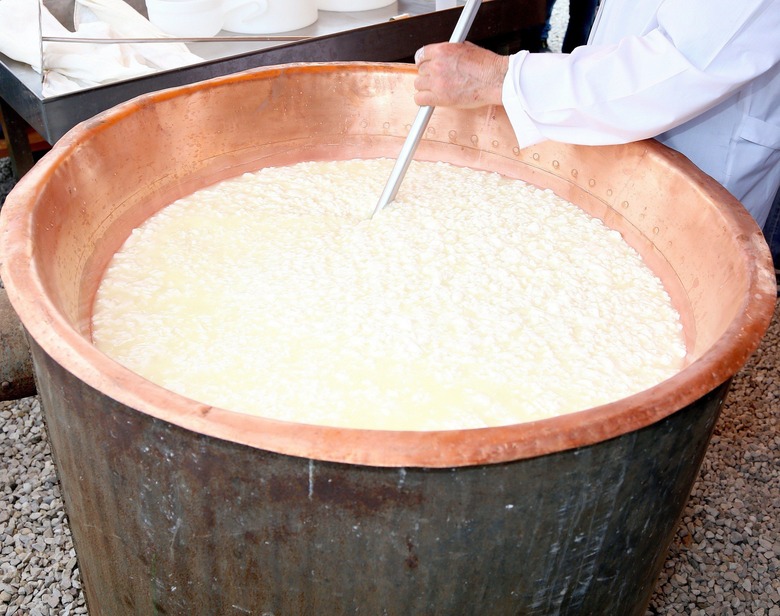Should We Avoid Eating Raw Milk Cheese Altogether?
Vulto Creamery, one of America's most popular artisanal cheesemakers, is trying to clean up its act after last week's turmoil following the deaths of two consumers who ate deadly listeria bacteria in raw milk cheese. After an initial product recall, Vulto is now pulling more products off the shelves. In total, eight types of raw milk cheese have been recalled. The widow of one of the men who died just filed a wrongful death lawsuit.
While death by cheese may seem like a rare occurrence, the debate about the safety of raw milk cheese has been raging for years. It may be trendy to eat food that's as organic and unprocessed as possible, but the primary characteristic of raw milk is that it is unpasteurized. The pasteurization process kills off most of the harmful bacteria that can cause such deadly outbreaks, and unpasteurized dairy products are 150 percent more likely than pasteurized milk to make you sick.
The Centers for Disease Control and Prevention and the Food and Drug Administration know this, which is why raw milk cheese is banned in America until it's at least two months old. The 60-day rule is believed to allow enough time for the enzymes in the cheese to naturally kill off any lingering E. coli or listeria bacteria.
The cheese industry has defended its production of raw milk products.
"Ultimately, it is up to each up us to decide if we want to take certain risks for the benefits," Righteous Cheese, an artisanal cheese store in Washington, D.C., told Quartz. "[Raw milk cheeses] have an incredible amount of health benefits" that are stripped from milk during the process of pasteurization.
The CDC denies that this is the case, stating that raw milk cheese does not carry any additional health benefits as compared to pasteurized cheese and can cause infections much more easily.
